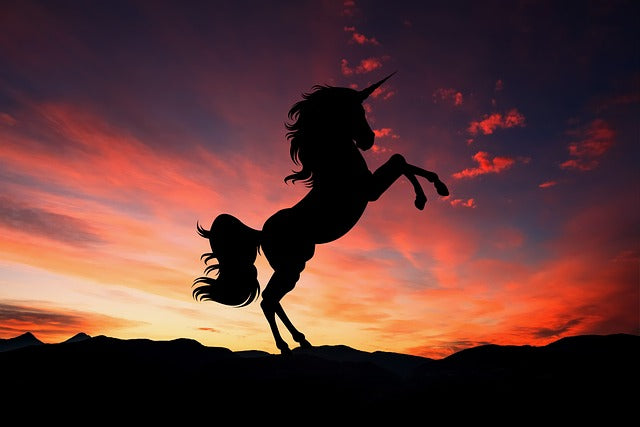
Are Unicorns Really Magical?
Unicorns have been one of the most popular mythical creatures throughout history. They are often depicted as white horses with a single horn protruding from their forehead. However, there has been much debate about whether unicorns are actually magical creatures or simply fictional entities. In this blog post, we will explore the concept of unicorns and their magical powers, as well as the symbolism of their horns and the significance of these mythical creatures.
Firstly, let's talk about the unicorn's magical powers. Unicorns are often associated with supernatural abilities such as healing, immortality, and the ability to purify water. These powers have been depicted in various forms of literature, art, and media. For example, in Harry Potter and the Philosopher's Stone, Harry and his friends use unicorn blood to save Voldemort's life, implying that unicorns have powerful healing properties.
In addition, unicorns are often portrayed as being immortal creatures. This is because they are associated with purity and innocence, and therefore, they are thought to be immune to death. This idea is further reinforced by the legend that says that only a virgin can approach a unicorn, as they are pure and innocent enough to be in the presence of such a magnificent creature.
Furthermore, unicorns are believed to have the power to purify water. In ancient times, it was believed that unicorns had the ability to purify water simply by dipping their horn into it. This idea has been depicted in various forms of art, such as the famous painting The Unicorn in Captivity. The painting shows a unicorn standing in a garden while holding a chained vessel in its front hoof. The vessel is believed to symbolize the idea of the unicorn purifying water, making it safe to drink.
Now, let's talk about the significance of the unicorn's horn. The horn is often seen as a symbol of power and purity. In medieval times, the horn was believed to have magical properties and was highly sought after for its supposed medicinal properties. It was believed that the horn could cure various ailments such as fever, epilepsy, and poisoning.
However, it is important to note that the belief in the magical properties of unicorn horns led to the hunting and killing of many unicorns. In reality, the so-called "unicorn horns" were often just the horns of other animals such as narwhals or rhinoceroses. The killing of these animals has led to their endangerment and is a clear example of how myths and legends can have negative consequences in the real world.
Despite the controversy surrounding the unicorn's horn, it is still seen as a powerful symbol in modern times. It is often used in various forms of art and media as a symbol of purity and strength.
Finally, let's address the question of whether unicorns are really magical creatures. While there is no scientific evidence to support the existence of unicorns, the concept of magical creatures has been an important part of human culture for centuries. These mythical creatures often serve as symbols of hope, purity, and strength. The belief in magical creatures such as unicorns has helped people to cope with difficult situations and has provided a sense of comfort in times of distress.
In conclusion, unicorns are undoubtedly one of the most popular mythical creatures of all time. Their magical powers and symbolism have captured the imaginations of people for centuries. While there is no evidence to support the existence of unicorns, the belief in magical creatures has played an important role in human culture and has provided people with a sense of comfort and hope.
Looking for incredible unicorn toys and gifts? Explore several well-priced options here.
